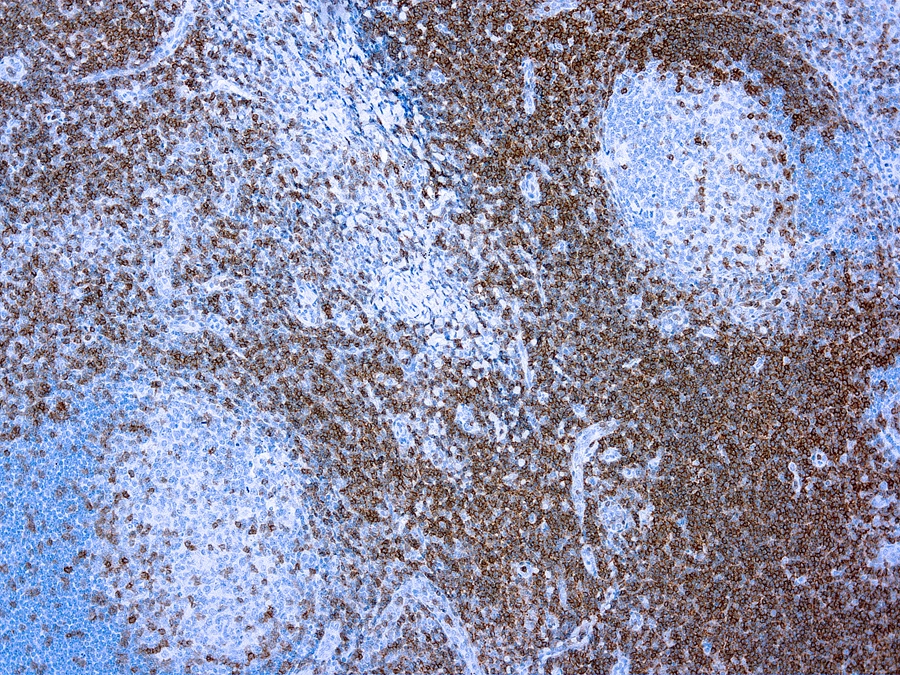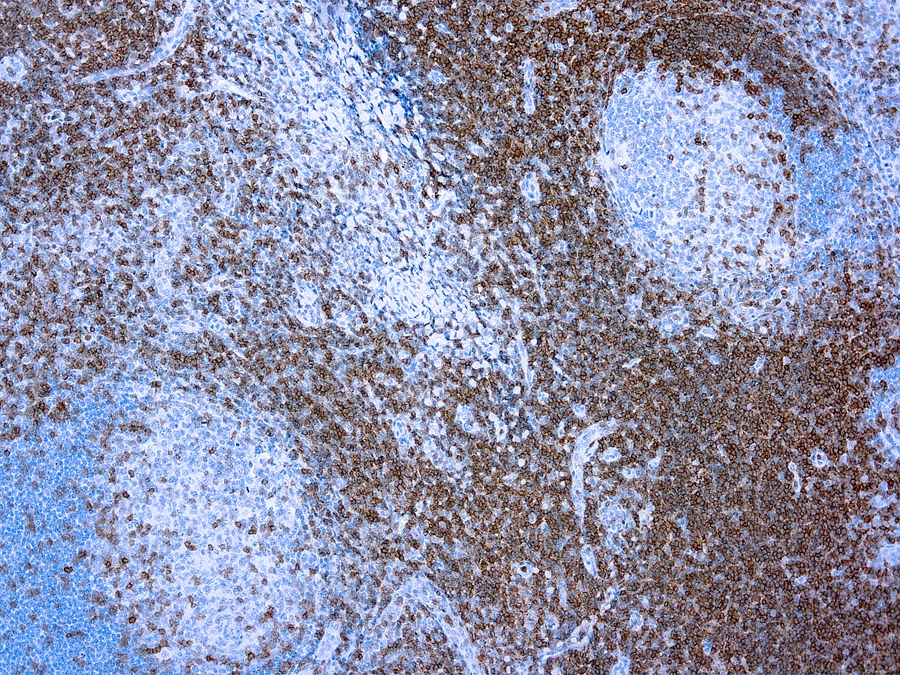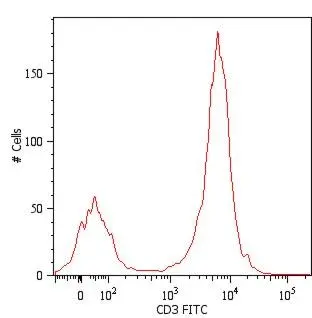CD3 epsilon antibody
GTX20022
ApplicationsFlow Cytometry, ImmunoFluorescence, ImmunoPrecipitation, Western Blot, ImmunoCytoChemistry, ImmunoHistoChemistry, ImmunoHistoChemistry Frozen, RadioImmunoAssay
Product group Antibodies
TargetCD3D
Overview
- SupplierGeneTex
- Product NameCD3 epsilon antibody [UCHT1]
- Delivery Days Customer9
- Application Supplier NoteThis antibody is not suitable for use on paraffin sections.
- ApplicationsFlow Cytometry, ImmunoFluorescence, ImmunoPrecipitation, Western Blot, ImmunoCytoChemistry, ImmunoHistoChemistry, ImmunoHistoChemistry Frozen, RadioImmunoAssay
- CertificationResearch Use Only
- ClonalityMonoclonal
- Concentration1 mg/ml
- ConjugateUnconjugated
- Gene ID915
- Target nameCD3D
- Target descriptionCD3 delta subunit of T-cell receptor complex
- Target synonymsCD3-DELTA, CD3DELTA, IMD19, T3D, T-cell surface glycoprotein CD3 delta chain, CD3 antigen, delta subunit, CD3 delta, CD3d antigen, delta polypeptide (TiT3 complex), CD3d molecule, delta (CD3-TCR complex), OKT3, delta chain, T-cell receptor T3 delta chain
- HostMouse
- IsotypeIgG1
- Protein IDP07766
- Protein NameT-cell surface glycoprotein CD3 epsilon chain
- Scientific DescriptionThe protein encoded by this gene is the CD3-epsilon polypeptide, which together with CD3-gamma, -delta and -zeta, and the T-cell receptor alpha/beta and gamma/delta heterodimers, forms the T-cell receptor-CD3 complex. This complex plays an important role in coupling antigen recognition to several intracellular signal-transduction pathways. The genes encoding the epsilon, gamma and delta polypeptides are located in the same cluster on chromosome 11. The epsilon polypeptide plays an essential role in T-cell development. Defects in this gene cause immunodeficiency. This gene has also been linked to a susceptibility to type I diabetes in women. [provided by RefSeq, Jul 2008]
- Storage Instruction-20°C or -80°C,2°C to 8°C
- UNSPSC12352203
References
- Selective targeting and timing of matrix metalloproteinase inhibition in post-myocardial infarction remodeling. Yarbrough WM et al., 2003 Oct 7, CirculationRead more

![IHC-P analysis of human tonsil tissue using GTX16669 CD3 antibody [SP7].](https://www.genetex.com/upload/website/prouct_img/normal/GTX16669/GTX16669_20191203_IHC-P_5_w_23060620_244.webp)

![IHC-P analysis of human tonsil tissue using GTX17143 CD3 antibody [F7.2.38].](https://www.genetex.com/upload/website/prouct_img/normal/GTX17143/GTX17143_20191203_IHC-P_30_w_23060620_353.webp)


![FACS analysis of human peripheral blood lymphocytes using GTX01459-06 CD3 antibody [Hit3a] (FITC). Solid lone : primary antibody Dashed line : isotype control antibody amount : 0.5 microg (5 microl)](https://www.genetex.com/upload/website/prouct_img/normal/GTX01459-06/GTX01459-06_20200428_FACS67_w_23053121_391.webp)
![FACS analysis of human peripheral blood lymphocytes using GTX01459-07 CD3 antibody [Hit3a] (APC). Solid lone : primary antibody Dashed line : isotype control antibody amount : 0.25 microg (5 microl)](https://www.genetex.com/upload/website/prouct_img/normal/GTX01459-07/GTX01459-07_20200428_FACS2_w_23053121_569.webp)